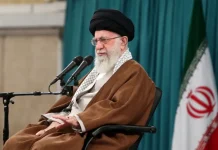President Muhammadu Buhari has instructed the Senate to repeal and re-enact the Money Laundering Prohibition Act.
This is contained in a letter to the Senate President, Abubakar Bukola Saraki, entitled: “The Money Laundering Prevention and Prohibition Bill 2016 and the Mutual Legal Assistance in Criminal Matters Bill 2016.’
The President said the bill provides for the repeal of the Money Laundering Prohibition Act 2011 as amended in 2012, to make comprehensive provisions prohibiting the laundering of criminal activities, expand the scope of money laundering offences, provide protection for those who may discover money laundering, enhance customer due diligence, provide appropriate penalties and expand the scope of supervisory bodies, while recognising the role of certain self-regulatory organisations to address challenges in the implementation of a comprehensive anti-money regime.
“I hereby introduce for formal consideration and enactment into law the Money Laundering Prevention and Prohibition Bill 2016 and the Mutual Legal Assistance in Criminal Matters Bill 2016.
‘’Money Laundering Prevention and Prohibition Bill 2016: This bill provides for the repeal of the Money Laundering Prohibition Act 2011, as amended in 2012, to make comprehensive provisions to prohibit the laundering of criminal activities, expand the scope of money laundering offences, provide protection for employees of various institutions, bodies and professions, who may discover money laundering, enhance customer due diligence, provide appropriate penalties and expand the scope of supervisory bodies, while recognising the role of certain self-regulatory organizations to address challenges in implementation of a comprehensive anti-money regime.
“The Mutual Legal Assistance in Criminal Matters Bill 2016: This bill seeks to facilitate the provision and obtaining by Nigeria of international assistance in criminal matters, including the provision and obtaining of evidence, making of arrangements for persons to give evidence or assist in criminal investigations, recovery, forfeiture or confiscation of property in respect of offences; restraining dealings in property or the freezing of assets that may be recovered, forfeited or confiscated in respect of offences; execution of request for search and seizure, location and identification of witnesses and suspects, service of documents and other matters connected herewith.”











Buhari Moves To Re-enact Money Laundering Prohibition Act: President Muhammadu Buhari has instructed the Sena… https://t.co/FgVnOzFK41
Buhari Moves To Re-enact Money Laundering Prohibition Act – https://t.co/OZya5re46v … —